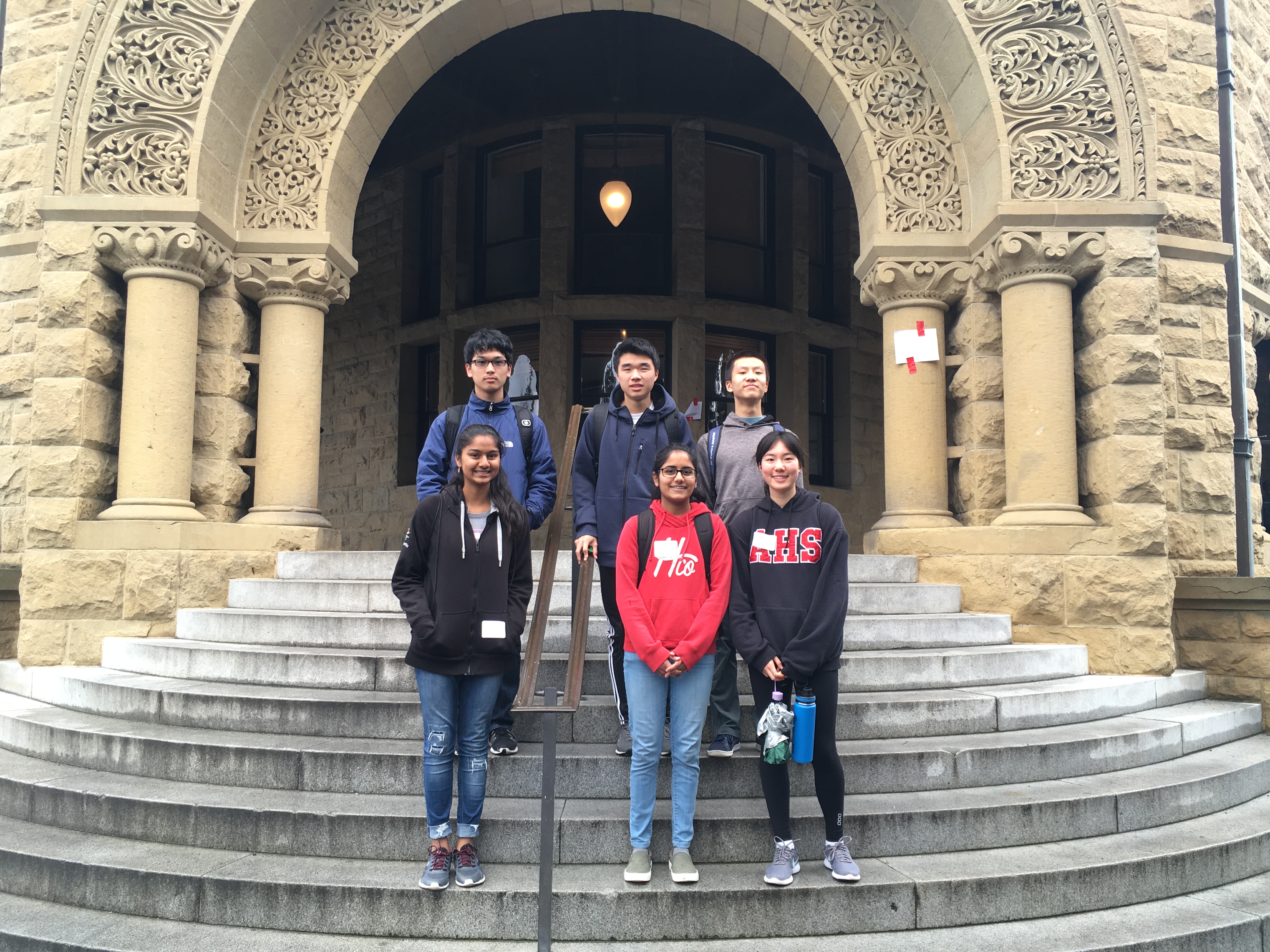
Aragon Math Club students compete in Stanford Math Tournament.

Aragon Math Club competed in the Stanford Math Tournament (SMT), an annual math competition for high school students at Stanford University on March 2, 2019.
“The Stanford Math Tournament is one of the few off-campus competitions we do. It’s a fun day of problem solving where there are both team and individual rounds of activities,” said senior Daniel Li, Aragon Math Club’s vice president.
The Aragon Math Club placed 19 out of 36 teams in the competition.
“The competition is very competitive, so it is very difficult to get an award, but we enjoy it there,” Li said. “[We] have fun solving problems, feel like we’re getting challenged and interact more with our team.”
Though Math Club has competed in other similarly structured math tournaments, like the American Mathematics Competitions (AMC), this was the first time some of the club members attended the SMT.
“This competition was more difficult than other math competitions I’ve been to before. It’s also my first time coming to this particular competition,” said math club member sophomore Andrew Cheng.
The team was challenged with new math concepts as well.
“The team rounds were significantly more difficult. The first focus round focused on set theory, which is not normally taught in high school, so we didn’t really have too much experience with that. It was a first exposure to the concept,” said junior Kai Xu, secretary of Math Club.
According to Xu, facing the difficult, new concepts required more logical problem solving.
“We were given equations that we needed to know, but we had to make conclusions based on easier examples they gave us and appl[y] it to the harder examples,” Xu said.
Aragon’s Math Club ranked 28 in the group portion and 15 in the power portion. Having more members on the team provided more opportunities for a higher score.
“We worked in large groups of eight. There’s a power round [and] a fast paced team round along with a team portion,” said math club member freshman Sakshi Thoutireddy. “In the individual rounds, you can choose from a variety of math topics like Geometry, Algebra and Calculus. I chose Geometry and Algebra because I’m good at those areas.”
This year, 12 members competed compared to last year’s approximately four participants. According to Li, more participants resulted in more team bonding opportunities.
“For Math Club, we don’t have as many off-campus activities, so it’s good to take advantage of whatever opportunities we can find,” Li said. “It’s also a time to interact more with the club members because club meetings are short.”
Club members prepared for the SMT beforehand in order to perform well in the competition.
“To prepare, we learn different ways to approach different problems and concepts,” Thoutireddy said. “We also practice lots of problems from the previous SMT years’ tests they post online.”
Along with the practice, the team members must also be mentally prepared for the competition.
“I would say that before the test, I wasn’t too nervous,” Xu said. “I just trust that I have the concepts ready with me and the skills that I’ve built up over the past years [to] bring them to the competition and do my best.”
The team hopes to use the SMT as a learning experience for future competitions.
“The exam was quite difficult, so we didn’t place in the top ranks, but it was a great learning experience that we’ve learned from. The concepts we learned today will be used for future math competitions,” Xu said.



